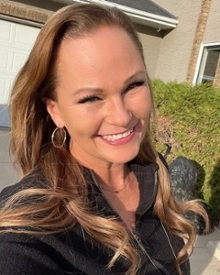Well-being: The state of being comfortable, healthy, or happy. There is no one-size-fits-all way to achieve it.
USask resources
External resources
Courses, advice and more
The Science of Well-Being
The FREE Science of Well-being Course from Yale is an online course based on one of its most popular in-person courses. You will engage in a series of challenges designed to increase your own happiness and build more productive habits.
Mindfulness-Based Stress Reduction
The Palouse Mindfulness-Based Stress Reduction Course is FREE, online, and self-guided. It is a blend of meditation, body awareness, and mindful movement.
Advice from the CBA's Dear Advy
Advy is the Canadian Bar Association's advice columnist, where members can submit questions anonymously. Many questions highlight problems face by young lawyers.
Dry February
The Canadian Cancer Society continues to spearhead Dry February for Canadians. If you are sober curious you may want to pledge sobriety for a month and see how your wellbeing and performance are affected.
Bell Let's Talk Day
A day to talk about protecting your mental health. Bell has Conversation Guidelines to help you with terminology and discussion around tough issues.
Books
Daicoff, Susan Swaim, Comprehensive Law Practice: Law as a Healing Profession (Durham, North Carolina: Carolina Academic Press, 2011).
Muir, Ronda, Beyond Smart Lawyering with Emotional Intelligence (Chicago: American Bar Association, 2017).
Martin, Nathalie, Lawyering from the Inside Out: Learning Professional Development through Mindfulness and Emotional Intelligence (Cambridge, UK: Cambridge University Press, 2018).
Podcasts
These provide further education on promoting your wellbeing: wellbeing such as:
Videos
CBA Mental Health and Wellness in the Legal Profession - The Law Society of Saskatchewan
Canadian Mental Health and Well-Being for Post-Secondary Students
The National Standard of Canada for Mental Health and Well-Being for Post-Secondary Students seeks to assist post-secondary institutions in creating “more inclusive and more equitable spaces where all students can flourish.”
Contact
Do you have questions or need support?

Dr. Judy Jaunzems Fernuk
Well-Being Coordinator
judy.fernuk@usask.ca
306-966-8973
Office Hours: Please email Judy to set up a time to chat.
She is a registered educator and mental health practitioner (RTC, MTC). At the college, Judy offers counselling and bridge support to students in need or crisis, and she advises and supports faculty and staff in areas of well-being research, communication, conflict resolution, and more.
Judy uses solution-focused therapeutic approaches along with CBT (Cognitive Behavioural Therapy) and DBT (Dialectic Behavioural Therapy) to aid students in managing stress, solving problems or conflicts, and setting goals.
